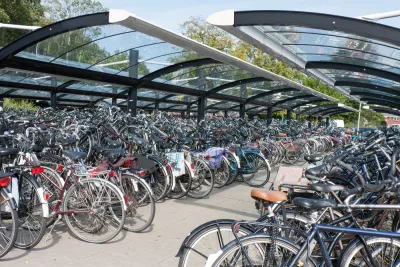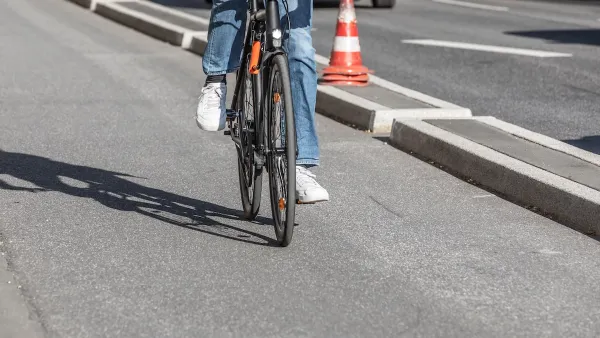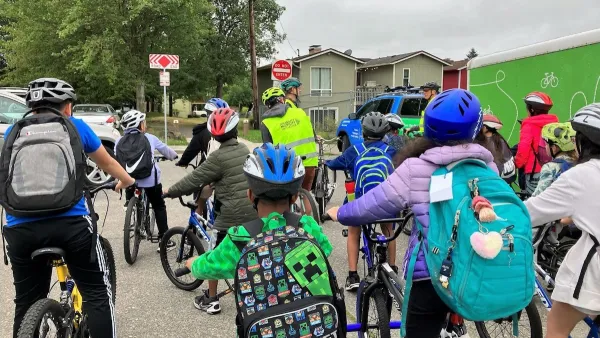According to one Canadian couple living in Holland, walkable cities and good bike infrastructure aren't just a Dutch anomaly.

Streetsblog's Kea Wilson interviews Melissa and Chris Bruntlett, a Vancouver couple who, after moving to the Netherlands, wrote a book titled Curbing Traffic: The Human Case for Fewer Cars in our Lives, "which they hope will inspire advocates to question the narrative that car-light life is a luxury reserved only for the Dutch."
The Bruntletts examine four harmful myths that discourage cycling and cycling infrastructure in the U.S. According to them, many Americans believe bikes have always played a role in Dutch life, but "the Netherlands initially embraced the automobile, until a wave of traffic-safety activism in the early ’70s and the 1973 oil embargo crisis made universal car dependence controversial and impractical." Early efforts to build cycle tracks often met with local resistance, "with some business owners even prying up the tracks in the middle of the night."
Another misconception: car-light cities are harmful for people with disabilities. Instead, Melissa says, " in a low-car city that’s designed well, we’re inherently providing streets that give people more space to move in wheelchairs, with canes, and other mobility aids, too. In that kind of space, people with disabilities aren’t just accommodated; virtually the entire public realm is open to them."
The third myth: Holland's street safety protests tipped the scales toward discouraging private cars. In fact, it was the Dutch government's 1979 Noise Abatement Act that helped force communities to cut down on car traffic.
The fourth myth explored by the Bruntletts deals with the common perception that good bike infrastructure is an entirely Dutch creation. "[T]here are communities all over the world that are doing this. You can learn from the Netherlands, or from Montreal, or Auckland, New Zealand, or Bogotá, Colombia," says Chris. "Any city can achieve this, but politicians need to put their money where their mouths are and build the people-centered places they all say they want."
FULL STORY: Four Myths About Car-Light Cities, Busted

Analysis: Cybertruck Fatality Rate Far Exceeds That of Ford Pinto
The Tesla Cybertruck was recalled seven times last year.

National Parks Layoffs Will Cause Communities to Lose Billions
Thousands of essential park workers were laid off this week, just before the busy spring break season.

Retro-silient?: America’s First “Eco-burb,” The Woodlands Turns 50
A master-planned community north of Houston offers lessons on green infrastructure and resilient design, but falls short of its founder’s lofty affordability and walkability goals.

Test News Post 1
This is a summary

Analysis: Cybertruck Fatality Rate Far Exceeds That of Ford Pinto
The Tesla Cybertruck was recalled seven times last year.

Test News Headline 46
Test for the image on the front page.
Urban Design for Planners 1: Software Tools
This six-course series explores essential urban design concepts using open source software and equips planners with the tools they need to participate fully in the urban design process.
Planning for Universal Design
Learn the tools for implementing Universal Design in planning regulations.
EMC Planning Group, Inc.
Planetizen
Planetizen
Mpact (formerly Rail~Volution)
Great Falls Development Authority, Inc.
HUDs Office of Policy Development and Research
NYU Wagner Graduate School of Public Service




























